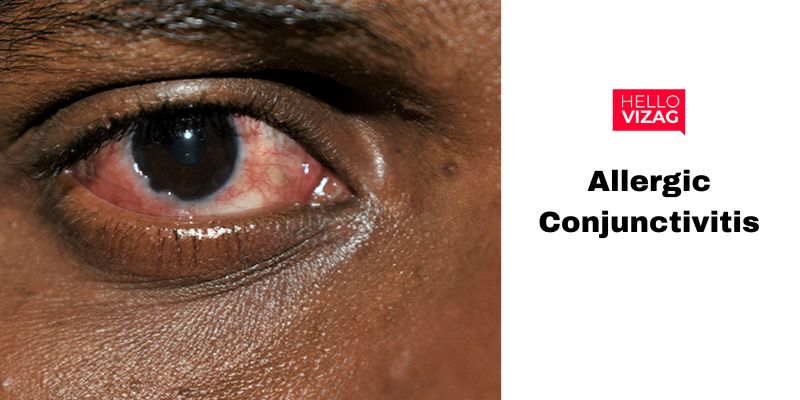Protect your eye before it is infected with conjunctivitis
With the onset of the monsoon, there has been a spike in cases of pink eye, commonly known as conjunctivitis, in the city. While many visit doctors others choose to try home remedies or take over-the-counter (OTC) remedies, which doctors say could be harmful.
According to medical experts, they used to see 200-280 patients with conjunctivitis daily now. They said monsoons are a time when diseases and eye infections are more common due to increased germs and viruses in the air. Conjunctivitis can be caused by bacterial or viral infections of the eye.
It is characterized by symptoms such as redness and swelling of the eye, a yellow sticky discharge, eye irritation, and pain. It lasts for about five to seven days. These signs tend to spread easily in environments with higher moisture levels. School-going children are particularly prone to conjunctivitis during this season. Since the current spike is viral in nature, the infection is highly contagious”.
For the past two years, this chain had been broken by the hygiene rules put in place during COVID-19. But with protocols easing up, we are seeing cases doubling up rapidly, mostly among school children. The disease eventually gets transmitted to other family members at home,” said cataract and glaucoma specialist, Vision Care.
An ophthalmologist connected to a super specialty hospital in the city said: “Patients usually complain of early symptoms like watery and cloudy eyes. Most of them avoid consulting a doctor and choose to use over-the-counter eye drops from local medical stores.”
He added that maintaining hygiene is a very important preventive step. “Regularly cutting nails and keeping the surroundings clean can help prevent pink eye. Most patients who come in are between the ages of 10 and 30. Diabetics should take special care,” he added.
Stating further he said, “In most cases, the infection takes around seven days to heal on its own. But in some, it can manifest with more aggressive symptoms if there is corneal involvement. There is no proper anti-viral medication for it. The affected may use any teardrop to keep the eyes moist while some might need an antibiotic drop to prevent secondary bacterial infection. But this should be done after consultation with doctors.
Another ophthalmologist said: “People, especially those with low immunity, are prone to infection. It usually takes five to seven days to heal. However, patients should avoid rubbing their eyes as it can aggravate complications.”
Conjunctivitis is highly contagious and can spread easily through direct or indirect contact with infected secretions, such as sharing napkins or touching contaminated surfaces, said senior medical experts. It can also be transmitted through contaminated water or towels used during swimming. However, there are several simple measures you can take to prevent its occurrence, according to the expert:
1. Wash hands regularly: Practising good hand hygiene by washing your hands regularly with soap and water can significantly reduce the risk of infection.
2. Avoid touching your eyes: Refrain from touching your eyes with unwashed hands, as this can introduce bacteria or viruses into the eye.
3. Promptly seek medical attention: If you experience early symptoms of conjunctivitis, such as redness, sticky discharge, watering, or pain, do not hesitate to consult an ophthalmologist for a timely diagnosis and appropriate treatment.
4. Personal items: Avoid sharing personal items like towels, clothes, pillows, or bedspreads with others, as conjunctivitis can spread through commonly touched items.
5. Avoid sharing eye drops: Even if multiple family members are affected by conjunctivitis, it is crucial not to share eye drops, as this can increase the risk of transmission.
6. Maintain separate linens: Keep your towels, bed sheets, and clothes separate from those of other family members to minimize the risk of contamination.
7. Protect your eyes: If you have already contracted conjunctivitis, consider wearing glasses or a face shield to prevent the infection from spreading to others.
8. Use recommended eye drops: Follow the advice of your doctor and use lubricating eye drops as recommended to alleviate symptoms and promote healing.





















